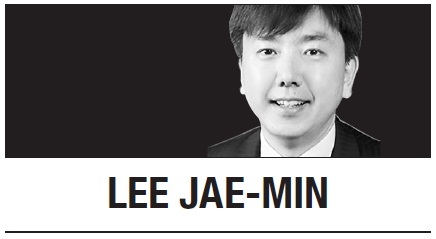
Korea in 1987 and Korea in 2018 are like day and night. The sharp difference means the current Constitution adopted in 1987 does not accurately reflect the reality of Korea today and the minds of the people at present. The intervening three decades have seen the emergence of national practices that have outgrown the clothes of the provisions of the Constitution. Some wordings turned out to be inadvertent loopholes. Add recent political developments, most notably the presidential impeachment of 2017. It showed how far off track the currently “omnipotent” presidential system could go.
This is the logic, quite persuasive by the way, that has prompted current discussions of constitutional amendment. A plausible suggestion is to put a constitutional amendment proposal to a national referendum on the occasion of the upcoming local government election slated for June 13. One stone, two birds. Korean efficiency.
Who would oppose updates and improvements? But the only problem is “politicization.” Even with whispers of constitutional amendment, national politics is already boiling hot. What is being said about constitutional amendment in the political arena these days foreshadows a major clash between the political camps: an otherwise “one-point” technical amendment process is now morphing into another occasion to show how divided our society is. Different political camps are now shooting up test balloons to check on the wind currents, and digging their heels in. What is good for their respective political camps and what is best for the nation are all thrown into the mix together, so each side questions the real intent of the other side with respect to any proposal of the amendment.
Come to think of it, to political parties striving to rally their supporting groups, none would be more appealing than the topic of constitutional amendment. It has the potential to become a political detonator of everything. Ideological differences of all sorts can come roaring back to life as political camps galvanize and mobilize their core supporting groups.
The question is, can we afford to have such an acrimonious row at this time of increasingly unforgiving surroundings of the country? The next several months will be a critical period. This is the time when even a deeply divided country would try to find a reason to stand together and speak together. Sensible and responsible political leaders would try to bury the hatchet.
Back to the Constitution. The Constitution is outdated and an amendment is long overdue. Undoubtedly, there are obvious benefits from updates and improvements. But if they mean months of national rallies and further national division, again at this time, we had better be cautious. There is no reason to check how deeply divided we are, and advertise it to others. It is time to boost the sense of togetherness and try to do something cohesive, time to smooth things over.
With apologies to the Constitution waiting for an overhaul, this is probably the worst timing for ideological division and political infighting. Once the situation stabilizes a bit, we then can promptly initiate the national debates and conclude the project.
After the first month of 2018, we know that we are looking at a pivotal year. Everybody is eager to see the tide turn in the coming months for a peaceful resolution of the current Korean situation. Who knows what will happen: Maybe there will be a magical breakthrough sometime this year, perhaps after the Winter Olympic Games. But for the luck to fall in our favor, we should stand (or at least look and sound) united.
The next several months is not a good time for political infighting. This is not the time for deepening national split. Rather, a time for boosting national spirit.
Lee Jae-min
Lee Jae-min is a professor of law at Seoul National University. He can be reached at jaemin@snu.ac.kr. -- Ed.






![[Herald Interview] 'Trump will use tariffs as first line of defense for American manufacturing'](http://res.heraldm.com/phpwas/restmb_idxmake.php?idx=644&simg=/content/image/2024/11/26/20241126050017_0.jpg)
![[Exclusive] Hyundai Mobis eyes closer ties with BYD](http://res.heraldm.com/phpwas/restmb_idxmake.php?idx=644&simg=/content/image/2024/11/25/20241125050044_0.jpg)
